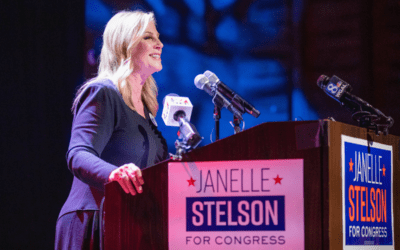
Graphic via Denzel Boyd for COURIER
A recent Gallup poll and research findings from a cadre of economists paint a dark picture for the state of women’s happiness.
As the U.S. celebrates the 100th anniversary of the 19th Amendment, which gave women the right to vote, fewer than half say they are satisfied with their treatment in this country—and the outsized impact of COVID-19 on women’s employment will surely exacerbate the situation.
A recent Gallup poll and study findings from a cadre of economists paint a dark picture for the state of women’s happiness, as heightened unemployment, unequal division of household labor, and increased childcare needs erode their hope for equal treatment in American society.
No Satisfaction
The Gallup poll, conducted June 8 through July 24, questioned respondents on their satisfaction with the treatment of women in society and revealed sharp delineations along sex, race, and political affiliation. Men had a 16-point higher satisfaction rating than women this year, up from 2018, the last time the study was conducted, and a solid majority of Republicans, regardless of gender, said they were satisfied with the way women are treated in society.
The study included a sample of Black Americans proportionate to their representation in the U.S. population. Only 35% of Black women reported being satisfied, while Black men were only slightly more satisfied than Black women, at 40%. In comparison, 47% of white women and 67% of white men were satisfied at women’s treatment.
The gap grows even larger when examined by political affiliation, with Republican women reporting 80% satisfaction to Democratic women’s 26%, and Republican men reporting 83% satisfaction compared to only 33% of Democratic men.
This Time It’s Different
The COVID-19 recession has likely contributed to the chasm between the sexes. Normal economic downturns see more men falling into unemployment. But a team of economists from the National Bureau of Economic Research proposed that COVID-19’s resultant recession is unique from other recessions in recent history because of its impact on women’s employment.
Scholars said that, because social distancing requirements disproportionately hit high-contact and women-dominated sectors, such as child care, hospitality, education, and retail, a much higher percentage of women lost jobs. Until now, the Bureau of Labor Statistics hadn’t seen women’s unemployment reach double digits since 1948, when it first began tracking such numbers.
As of June, the unemployment rate for Latinas was 15.3%. For Black women, it was 14%. For white men, 9%. And there is evidence these numbers may have been undercounted due to incorrect job classifications by as much as 3 percentage points.
RELATED: Women Are Losing Their Jobs More Than Men Due To Coronavirus. Here’s Why.
Compounding this, the positions held by women tend to be the lowest paid, and are often held by women of color who face systemic barriers to progress. On average, white women still make 79 cents on the white male dollar, Black women earn 62 cents, Native American women 57 cents, and Latinas 54 cents.
“What this pandemic has done is to reveal in a concentrated and heightened way the inequities in our economy, in our labor force, in our immigration structure, in our social safety net, in our health care,” Kalpana Kotagal, an attorney who specializes in workplace gender and disability discrimination, told COURIER. “These are problems that existed before the pandemic, the vulnerability of these workers. We knew that they were vulnerable before but somehow they managed to eke it out. Now, … we’ve seen how truly tenuous they are because that catastrophic circumstance that everybody hoped would never come to pass has come to pass.”
The National Bureau of Economic Research study also found child care as a major cause of the pandemic recession’s large impact on working women. Even before the crisis, among married parents who both work full time, women spend more than 40 percent more time on childcare than men. That did not change when the pandemic took hold and schools and daycare centers closed. As children were sent home, women have taken on the lion’s share of extra childcare duties, leaving them struggling to work full-time or at all.
RELATED: Childcare Isn’t Going to Be the Same After the Pandemic
The consequences to women in the long run could be catastrophic. Within months of women reaching the majority of the paid U.S. workforce for only the second time in American history, the crisis has destroyed a decade of job gains. Even as states reopen, labor experts predict workers, especially in leisure and hospitality, will suffer reduced hours, lower wages, and fewer tips. As local and state governments slash budgets, economists expect women, who make up nearly 58% of the public sector workforce, to face more job losses. And some women might not be able to find the child care necessary to return to work.
A pandemic recession lessens the employability of women who reduce their hours or drop out of the labor force all together, researchers found, leading to a substantially wider, persistent wage gap, even after the economy begins to recover. The experts expect the COVID-19 recession to increase the gender wage gap by 5 percentage points.
RELATED: This Woman’s Unemployment Will Go From $725 to $125 if Congress Doesn’t Extend Benefits. She’s Not Alone.
“How are we supposed to ever come back?” Jasmine Tucker, director of research at the National Women’s Law Center, told the Washington Post. “I think it’s going to take a really long time to even reach that point again.”
Additional reporting by Kathleen Walsh.

For Rep. Susan Wild, supporting PA families includes reproductive rights and much more
Rep. Susan Wild wants to be very clear with Pennsylvanians: Donald Trump is committed to taking away women’s reproductive freedom, but he is not...

School districts working with anti-LGBTQ groups can cost your kids’ schools millions
Parents across South Central Pennsylvania are worried about the potential financial impacts working with anti-LGBTQ groups may have on their school...

VIDEO: Trump distances himself from his anti-abortion views
Donald Trump appeared on WGAL on Tuesday and continued to distance himself from his anti-abortion views claiming that reproductive rights are now a...

VIDEO: Community pushback gets school board to rescind decision on denying gay actor’s visit
Cumberland Valley School Board offered a public apology and voted to reinstate Maulik Pancholy as a guest speaker a week after the board voted to...

VIDEO: Project 2025 brings nuclear armageddon back into vogue
Project 2025 is a titanic document, with plans ranging from cutting half of all government employees to targeting reproductive rights on a scale...




